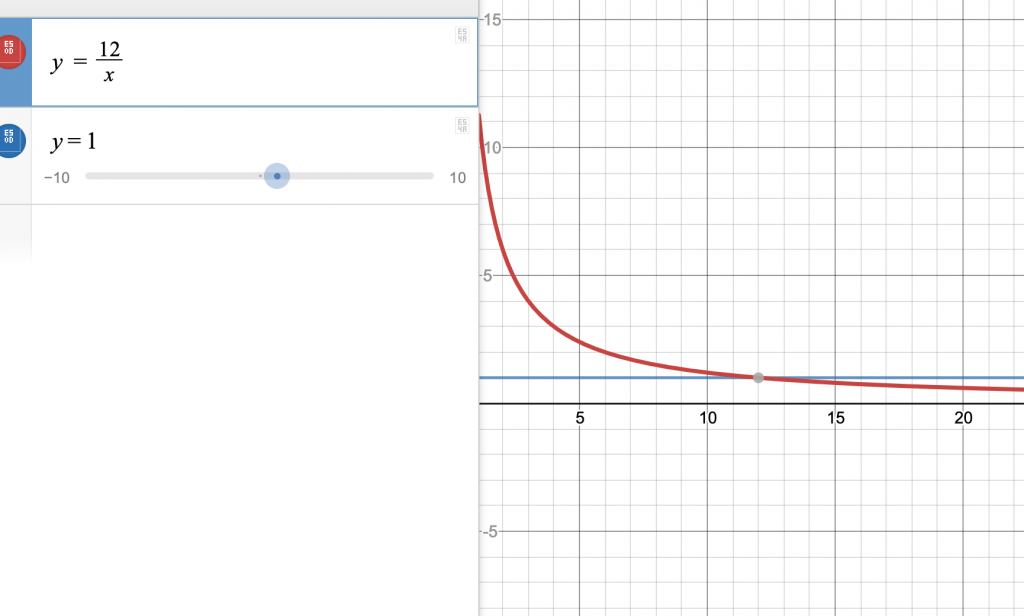In the previous post we discussed the Archimedean property for an ordered field. Today I’ll discuss the Archimedean property for valued fields, that is, fields equipped with an absolute value.
Recall that an absolute value on a field ![]() is a function
is a function ![]() satisfying the following axioms:
satisfying the following axioms:
 if and only if
if and only if 

 (triangle inequality)
(triangle inequality)
for all ![]() .
.
Here is an intuitive, analogous definition for the Archimedean property:
Definition: The absolute value ![]() is Archimedean if, for
is Archimedean if, for ![]() ,
, ![]() ,
, ![]() for some natural number
for some natural number ![]() .
.
Clearly the standard absolute value (which is defined on ![]() and
and ![]() , and therefore
, and therefore ![]() ) is Archimedean. But wait: since we assumed
) is Archimedean. But wait: since we assumed ![]() , we can divide both sides by
, we can divide both sides by ![]() to obtain
to obtain ![]() . In other words, we can write the definition equivalently as:
. In other words, we can write the definition equivalently as:
Equivalent Definition: The absolute value ![]() is Archimedean if, for all
is Archimedean if, for all ![]() ,
, ![]() for some natural number
for some natural number ![]() .
.
Here ![]() takes the place of
takes the place of ![]() . The important thing here is that
. The important thing here is that ![]() can be any element of
can be any element of ![]() So what this is saying is that, given any element of the field, there is some natural number that beats it.
So what this is saying is that, given any element of the field, there is some natural number that beats it.
Now, let us assume that the absolute value is nontrivial. (The trivial absolute value has ![]() for all nonzero
for all nonzero ![]() ). Thus, for some
). Thus, for some ![]() ,
, ![]() . So, either
. So, either ![]() or
or ![]() . Thus by taking arbitrarily high powers of
. Thus by taking arbitrarily high powers of ![]() or
or ![]() , we can obtain arbitrarily high absolute values. So we can reformulate the definition as follows:
, we can obtain arbitrarily high absolute values. So we can reformulate the definition as follows:
Equivalent Definition: ![]() is Archimedean if the set
is Archimedean if the set ![]() contains arbitrarily large elements.
contains arbitrarily large elements.
In other words, the set is unbounded. So, ![]() is non-Archimedean if the sequence
is non-Archimedean if the sequence ![]() is bounded. However, if any
is bounded. However, if any ![]() , then taking arbitrarily high powers of
, then taking arbitrarily high powers of ![]() can give us arbitrarily high absolute values. So
can give us arbitrarily high absolute values. So
Equivalent Definition: ![]() is non-Archimedean if
is non-Archimedean if ![]() for
for ![]() .
.
Finally, I will present another very useful characterization of the (non)Archimedean property.
Theorem/Equivalent Definition: ![]() is non-Archimedean if
is non-Archimedean if ![]() .
.
Proof: (to be added)
